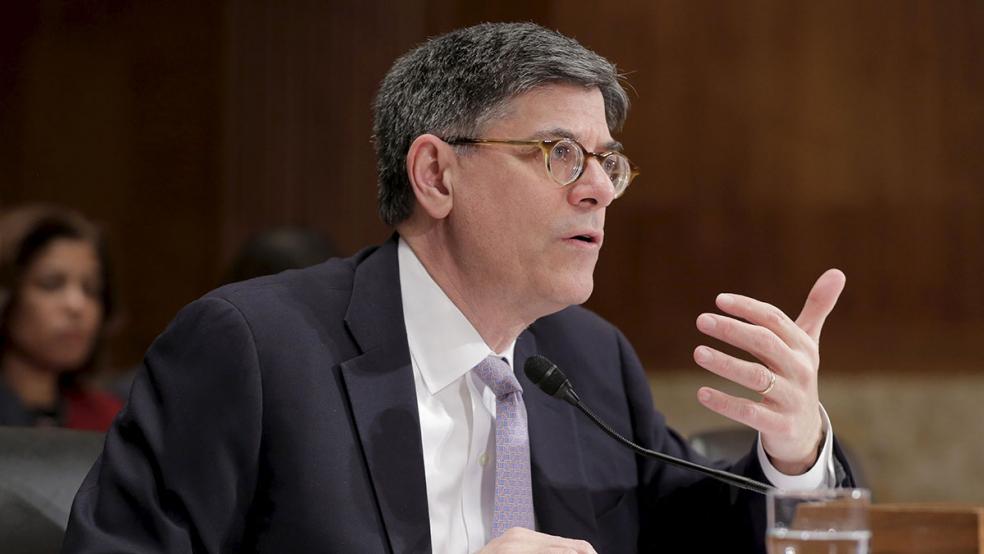If Donald Trump becomes president in January 2017, it's pretty clear that few of President Obama's advisers will have been asked to hang around and help out with the transition. But perhaps Treasury Secretary Jacob Lew wanted to make doubly sure that he won't have to keep a chair warm for Carl Icahn, or whomever Trump appoints as his successor: In an essay published in Foreign Affairs on Monday, he utterly repudiated the Trumpian view of America's place in the world.
Though Lew does not mention Trump, or any of the other candidates for president for that matter, the essay is a full-throated defense of U.S. engagement in a broad range of international institutions – even when they cost the Treasury money – as both a political and economic necessity.
Related: Team Trump Stirs the Pot Again, Says Cruz Using 'Gestapo Tactics'
"Unilateralism or isolationism often make for better sound bites," he wrote. "So it is incumbent on everyone who believes in the benefits that international cooperation has brought to the United States to be vocal in articulating the economic and geopolitical case for an ongoing U.S. commitment to global economic engagement."
While Trump is on the campaign trail trashing international institutions like the North Atlantic Treaty Organization and promising to replace jointly negotiated trade agreements with protectionist policies, Lew's essay makes the case for taking the long view of the role of the United States in the world.
Making the case for strong international engagement is tricky, he writes, "However, making this case is exactly what those who care about U.S. leadership in the world must do. History has shown that U.S. economic leadership is vital to the well-being of American workers and families, as well as to the ability of the United States to project its values and achieve its larger foreign policy objectives."
Lew also defended U.S. involvement in the United Nations, including honoring its substantial financial commitment, as essential. "Today, Washington is again accruing unmet pledges to many organizations to which it will turn at moments of crisis or to pursue other goals. To put it bluntly, the United States must pay its bills. The return on investment in terms of sustaining its influence and advancing its values is enormous. And if the United States does not lead, others will act without it."
Related: Cruz Runs Rings Around Trump in Colorado
The majority of Lew's focus, though, was on the U.S. commitment to multilateral financial institutions like the International Monetary Fund, the peripheral groups that help keep the world economy on an even keel like the G-20, and the agreements like the pending Trans Pacific Partnership trade deal which, he maintained, is essential to economic growth and stability in the region.
Pointing out the leadership role the U.S. plays in groups like the IMF, he said, "The international financial institutions amplify U.S. influence on the global stage."
The United States "was present at the creation" of the system of agreements and institutions that keeps money and goods flowing among the world's various economies, and maintains a dominant role in it.
Related: Even Republicans Don't Like trump and Cruz Very Much
"But the United States cannot take its global role for granted. It must continue to ask whether its actions—and inactions—enhance its capacity to maintain this preeminent leadership role in the future.
"The farsightedness of previous generations of Americans provided a solid foundation on which to advance American values and build a prosperous future for the United States and other countries. The task now is to strengthen this architecture and adapt it to new challenges."





